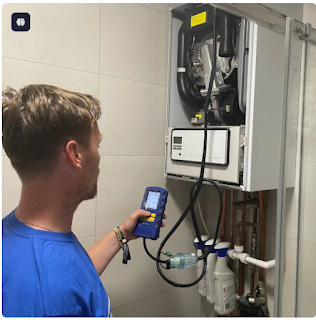Is the Gas Safety Certificate Cost Justifiable? Understanding Its Value and Pricing Factors
When it comes to gas appliances, safety is paramount. Whether for homeowners, landlords, or business owners, ensuring that gas systems are functioning correctly is not just a legal requirement but a crucial responsibility. However, one common question that arises is whether the gas safety certificate cost is truly justifiable. Is it just another expense, or does it bring real value? Let’s explore the importance of this certification, what influences its pricing, and why hiring a gas safe engineer is an investment rather than an expense.
Why Is a Gas Safety Certificate Important?
A gas safety certificate, also known as a CP12, is an official document confirming that gas appliances, flues, and related fittings in a property have been inspected and deemed safe. It’s a legal necessity for landlords in the UK under the Gas Safety (Installation and Use) Regulations 1998. But even if there is no legal obligation, ensuring gas safety should be a priority for every property owner.
Think about it – would anyone knowingly risk their family’s safety or tenants' well-being just to save a few pounds? Gas leaks, carbon monoxide poisoning, and potential explosions are not risks anyone should take lightly. This certificate ensures peace of mind and protection against hazardous situations.
Breaking Down the Gas Safety Certificate Cost
The gas safety certificate cost varies based on several factors.
Number of Appliances: Most inspections include a basic fee covering one or two gas appliances. If additional checks are required, the cost may increase.
Location of the Property: Prices can vary depending on where the property is situated. Urban areas like London tend to have higher charges compared to rural regions.
Type of Property: A small residential property will cost less than a large commercial establishment with multiple gas installations.
Service Provider: Not all engineers charge the same fee. Some companies offer competitive rates, while others charge premium prices for extensive services.
Urgency of Service: Need a last-minute inspection? Expedited services often come at a higher price.
Is the Cost Justifiable? Absolutely! Here’s Why.
Some may argue that the gas safety certificate cost is just another financial burden, but let’s break it down logically.
Prevents Life-Threatening Hazards: Gas leaks and faulty appliances can cause fires, carbon monoxide poisoning, or even explosions. The cost of preventing these risks is invaluable.
Protects Property Value: A well-maintained property with up-to-date safety certifications holds better value in the real estate market. Future buyers or tenants feel more secure knowing the gas installations are safe.
Saves Money in the Long Run: Identifying small issues early can prevent costly repairs or replacements down the line. A minor gas leak, if ignored, could lead to extensive damage, increasing future expenses.
Why a Certified Gas Safe Engineer Matters
Only a gas safe engineer is legally permitted to conduct gas safety checks in the UK. These professionals are registered with the gas safe register and are trained to identify even the slightest issues that an untrained eye might overlook.
Would anyone trust an unqualified individual to inspect something as critical as a gas system? Not only is it illegal, but it also puts lives at risk. A qualified gas safe engineer ensures that the inspection is thorough, accurate, and compliant with the law.
Finding the Right Service Provider
While pricing is an important factor, it should never be the only consideration. Choosing a reliable and experienced professional ensures the best service. Some companies may offer extremely low prices but cut corners during the inspection. Always check reviews, verify credentials, and ensure that the engineer is registered before booking a service.
Conclusion
At first glance, the gas safety certificate cost may seem like an added expense, but when considering the benefits, it becomes clear that it is a crucial investment. Legal compliance, safety assurance, long-term financial savings, and property value protection all justify the cost.


Comments
Post a Comment